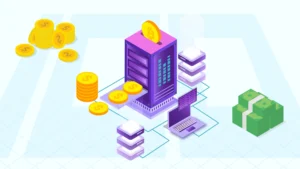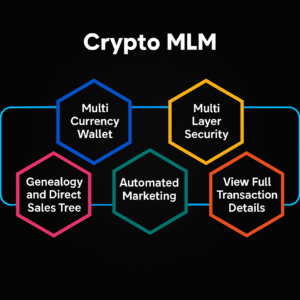
The financial landscape has changed dramatically over the past decade with the rise of blockchain technology. Among its most groundbreaking applications is the Initial Coin Offering (ICO), a fundraising model that has opened doors for projects, entrepreneurs, and asset holders to secure funding in ways that were once unimaginable. Unlike traditional capital-raising methods that rely heavily on banks, venture capitalists, or stock exchanges, ICOs allow digital tokens to be issued and purchased directly by investors across the globe.
This approach has proven to be faster, more transparent, and more inclusive, transforming how ideas move from concept to reality. Tokens created in an ICO can represent many things: fractional ownership of real estate, shares in a new business venture, digital access rights to a product, or even valuable commodities. The diversity of assets that can be tokenized has made ICOs a powerful tool for both innovators and investors.
What Makes ICOs Different?
At its core, an ICO is a blockchain-driven method of raising funds. Instead of equity shares being issued through traditional channels, projects generate digital tokens. These tokens are sold to contributors in exchange for widely accepted cryptocurrencies like Bitcoin or Ethereum, or even fiat money.
Smart contracts—the backbone of most Initial Coin Offerings– play a vital role in this process. They automatically execute predefined rules, such as distributing tokens when payment is received or returning funds if a project fails to meet its target. By eliminating reliance on intermediaries, smart contracts enhance both trust and efficiency.
This stands in stark contrast to conventional fundraising models. Traditional capital-raising requires lengthy negotiations, strict gatekeeping, and a limited pool of wealthy individuals or institutions. ICOs, on the other hand, make participation possible for anyone with internet access and a digital wallet, leveling the playing field.
Advantages of ICO-Based Fundraising
1. Borderless Participation
ICOs are not bound by geography. Whether you are in New York, Nairobi, or New Delhi, you can participate with just a few clicks. This inclusivity ensures that opportunities once reserved for high-net-worth individuals or elite investors are now accessible to everyday participants worldwide. For projects, this means a much larger pool of potential backers.
2. Speed and Efficiency
Launching an ICO can be accomplished far more quickly than pursuing traditional routes such as stock listings or private equity funding. Without middlemen like banks or brokers, costs are reduced significantly. The overall process—from ideation to completion—can often be completed within weeks instead of dragging on for months or even years.
3. Tokenization of Real Assets
One of the most revolutionary aspects of ICOs is their ability to tokenize tangible assets. Imagine a billion-dollar skyscraper being split into millions of digital shares. Suddenly, small-scale investors who could never dream of owning part of such a property can now hold a fraction of it. The same applies to fine art, commodities, or even intellectual property. Tokenization not only improves accessibility but also brings much-needed liquidity to markets that were previously illiquid.
4. Transparency and Security
Every transaction in an ICO is recorded on a blockchain, which is immutable and verifiable. This provides a permanent audit trail that cannot be manipulated. Enhanced security measures such as Know Your Customer (KYC) verification and Anti-Money Laundering (AML) protocols are often integrated, ensuring that fundraising activities remain safe and compliant. Investors can clearly track how tokens are allocated, how much has been raised, and what the goals are—building confidence and accountability.
5. Liquidity for Investors
In traditional investment models, assets like real estate or private shares are often difficult to sell. Investors may need to wait years for an exit opportunity. ICOs solve this problem by offering tokens that can be traded almost instantly on secondary markets. This liquidity gives investors far more flexibility and makes it easier to diversify portfolios without long lock-in periods.
Challenges in the ICO Landscape
While ICOs offer undeniable benefits, they are not without challenges.
-
Regulatory Uncertainty- The global legal framework for ICOs remains fragmented. Some countries embrace them, while others impose restrictions or classify them as securities, requiring stricter compliance. This unpredictability can create hurdles for both projects and investors.
-
Volatility- The cryptocurrency market is notoriously volatile. Sudden price swings can impact the value of tokens and discourage risk-averse investors. Stability measures and careful planning are necessary to mitigate these risks.
-
Security Threats- Although blockchain itself is secure, surrounding infrastructure can be vulnerable. Hackers often target exchanges, smart contracts, or even unsuspecting investors through phishing schemes. Strong security audits and careful code implementation are essential.
-
Trust and Standardization Issues- The lack of consistent valuation models and regulations means that fraudulent projects sometimes slip through. Investors need to conduct thorough due diligence, while projects must prioritize transparency and ethical governance to build trust.
The Evolution Toward STOs and DeFi
As the ICO space matures, new models are emerging. Security Token Offerings (STOs) represent the next step, combining blockchain innovation with established financial regulations. STOs provide legal protections similar to traditional securities while maintaining the efficiency of digital token issuance. This hybrid model is particularly attractive to institutional investors who seek compliance and legitimacy.
Meanwhile, Decentralized Finance (DeFi) has expanded the possibilities of token utility. Beyond just being tradable, tokens can now be staked for rewards, used as collateral for loans, or pooled in liquidity markets. These innovations enhance the overall value of participating in an ICO, making tokens more versatile than ever before.
Opportunities in Emerging Markets
One of the most exciting prospects for ICOs lies in developing regions. In countries where access to banking is limited but mobile connectivity is widespread, blockchain fundraising can fill a critical gap. Projects in sectors such as renewable energy, infrastructure, and agriculture are already tapping into ICOs to raise global capital. This not only fuels local development but also gives international investors exposure to new and diverse opportunities.
For example, a renewable energy initiative in Africa could issue tokens representing a stake in solar farms. Investors from around the world could participate, while local communities benefit from increased infrastructure and economic growth. Such models showcase the real-world potential of ICOs to drive positive change.
The Future Outlook
Looking ahead, ICOs are poised to remain a significant force in global finance. With clearer regulations on the horizon, investor confidence is likely to grow. Enhanced security frameworks, combined with technological advancements in blockchain, will reduce risks and improve efficiency.
We can also expect to see greater collaboration between traditional finance and blockchain ecosystems. Established financial institutions are already exploring partnerships, which will bring more credibility and stability to the ICO market. Additionally, as tokenization spreads into more asset classes, the potential for diversification and innovation becomes nearly limitless.






